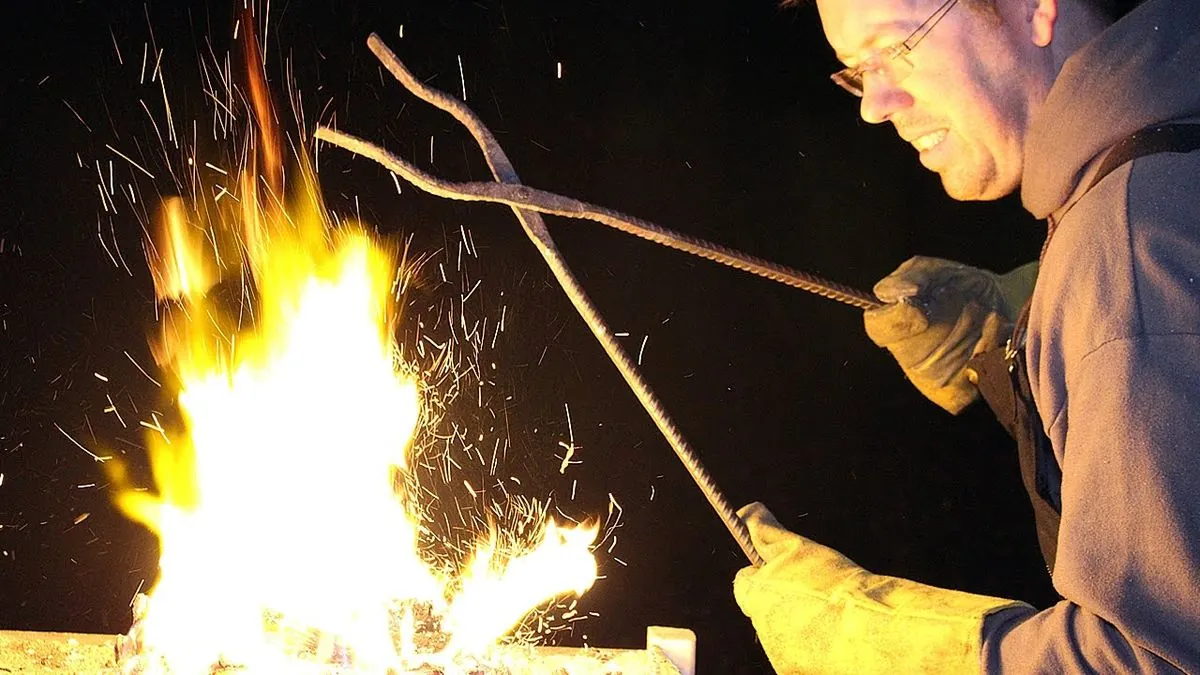Legal Hurdles for Home Blacksmith Forge Raise Neighborhood Concerns
A neighbor's plan to build a blacksmith forge in a residential area sparks concerns over noise, air quality, and fire safety. Legal expert outlines potential issues and suggests steps to address the situation.

In a unique neighborhood dilemma, a resident's plan to establish a blacksmith forge in a residential area has raised concerns among neighbors. The situation highlights the complex legal and practical challenges of operating specialized businesses in residential settings.
The aspiring blacksmith, having recently completed a course in the craft, intends to construct a forge at the bottom of his family's garden. While his neighbors appreciate his entrepreneurial spirit, they worry about potential impacts on their quality of life and property values.
Ian, a concerned neighbor, reached out for legal advice regarding the proposed forge. His primary concerns include noise pollution, air quality degradation (particularly as an asthmatic), and fire hazards. The proximity of the planned forge to surrounding homes, with gardens no longer than 20 meters, exacerbates these worries.
Legal expert Gary outlines several key considerations:
Environmental regulations: The Environmental Protection Act 1990 governs potential "statutory nuisances" arising from noise, waste, and emissions. Local authorities play a crucial role in enforcing these regulations.
Planning permissions: A change in land use from residential to business typically requires planning permission. The Town and Country Planning Act 1990 governs such matters, and local authorities assess applications based on various factors, including impact on neighbors.
Specialized regulations: If the blacksmith intends to work as a farrier (making horseshoes), registration with the Farriers Registration Council may be necessary. This body, established by the Farriers (Registration) Act 1975, maintains professional standards in the field.
Property covenants: Land title deeds may contain covenants restricting business use in residential areas. Homeowners should review their deeds for such clauses.

To address these concerns, Gary recommends the following steps:
Contact local authorities: Inform them about the planned forge, allowing them to explain relevant regulations to the aspiring blacksmith and his family.
Review property deeds: Check for covenants that may prohibit business use in the residential area.
Discuss with neighbors: Engage in open dialogue about concerns and potential impacts on property values.
Explore alternative locations: Consider suggesting more suitable locations for the blacksmith business, away from residential areas.
While supporting entrepreneurial endeavors is commendable, it's crucial to balance individual aspirations with community well-being. By addressing these legal and practical concerns proactively, neighbors can work towards a solution that respects both the aspiring blacksmith's goals and the residential community's needs.
"Almost certainly there will have to be a planning application made for change of use for part of an otherwise residential dwelling to be used a business premises."
This situation underscores the importance of understanding local regulations and maintaining open communication among neighbors when considering unique business ventures in residential areas.


































